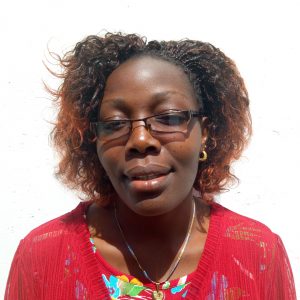Founded in 1986 by the Salvation Army Church, Emachina Primary School currently hosts 411 students and 11 teachers and staff. Despite its age, the school still has no water and very few latrines for students and staff.
Without a water source to call their own, the school depends primarily on a borehole well in the community. But the well is the main source for the entire village, meaning the students can easily overrun the place and cause major delays for the adults - and often their own families - at home. Long queues at the well also mean more missed class time for the students, who are typically forced to wait until all of the community members have fetched water first. Teachers say it is not uncommon for students to fight with one another over their place in line, sometimes leading to injuries.
"Sometimes pupils are forced to miss lessons at the expense of looking for water, which affects syllabus coverage, leading to poor performance among the pupils," said teacher Wycliffe Shikwati. Teachers agreed that their pupils' performance is typically at or below average, making them uncompetitive with other schools at their level and limiting the students' future opportunities.
When the well breaks down, the school is left without a water source even nearby. At these times, they require students to carry water from home or fetch it from a large river in the village, the latter of which is unquestionably unfit for human consumption. During the rainy season, the river floods and surges, making access to it a dangerous matter for the students.
Student Britton said that carrying water from home is always cumbersome. At the same time, "at the borehole, the community wants to fetch water first, making us wait for a long time before we are allowed to access water, hence missing our lessons." The tradeoff is hardly a fair one.
Sanitation is severely wanting in the school as well. This is partly due to their lack of water for regular cleaning and the meager number of latrines for the school - just six for girls and boys. All of them are almost full.
"I sometimes forego meals and even water, not because I don't want them, but because of the same reason that I will have trouble as to where to relieve myself because our latrines are just pathetic!" said teacher Madam Awino.
What We Can Do:
Rain Tank
A 75,000-liter rainwater catchment tank will help alleviate the water crisis at this school. The school will help collect the needed construction materials such as sand, bricks, rocks, and water for mixing cement. We will complement their materials by providing an expert team of artisans, tools, hardware, and the guttering system. Once finished, this tank will begin catching rainfall used by the school’s students and staff for drinking, handwashing, cooking, cleaning, and much more.
The school and we strongly believe that all of these components will work together to improve standards at this school, which will help lead to better student academic performance and unlock the potential for these students to live better, healthier lives.
Handwashing Stations
There is currently nowhere for students to wash their hands after using the latrines or before eating lunch, let alone the water.
The student health club will oversee the 2 new handwashing stations we will provide and ensure they are kept clean and in working condition. The club leaders will fill the handwashing stations with water daily and make sure they are always supplied with a cleaning agent such as soap or ash.
VIP Latrines
Currently, the youngest pupils have to share a latrine with the teachers. Several latrines have missing doors, falling-in roofs and are almost full. There are far too few latrines for the number of students.
2 triple-door latrine blocks will be constructed with local materials that the school will help gather. 3 doors will serve the girls, while the other 3 will serve the boys. These new latrines will have cement floors designed to be easy to use and clean. And with a rain tank right on school property, there should be enough water to keep them clean.
Training on Health, Hygiene, COVID-19, and More
All primary and secondary schools are currently closed in Kenya due to the COVID-19 pandemic, but they are scheduled to reopen in January 2021. Once classes resume, we will schedule a training session with students, teachers, and parents. This intensive training will cover a wide range of topics, including COVID-19 symptoms, transmission routes, prevention; personal and environmental hygiene; and the operation and maintenance of the rain tank, latrines, and handwashing stations. There will be a special emphasis on handwashing.
Our team of facilitators will use various methods to train, including participatory hygiene and sanitation transformation and asset-based community development. We will initiate a student health club, which will prepare students to lead other pupils into healthy habits at school and home. We will also lead lectures, group discussions and provide illustrative handouts to teach health topics and promote good hygiene practices within the school, including handwashing and water treatment. We will then conduct a series of follow-up training before transitioning to our regularly scheduled support visits throughout the year.



 Rehabilitation Project
Rehabilitation Project













































